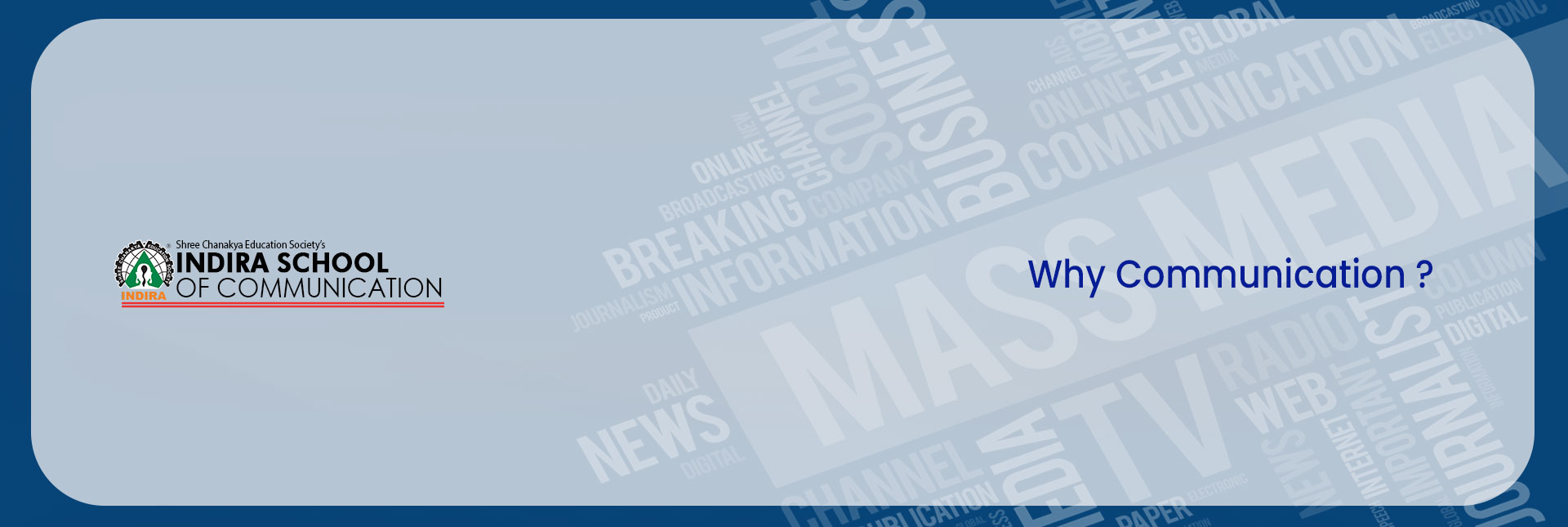
If you’re guessing journalism, mass communication or communication management aren’t for everybody, you’re guessing right. Too often we hear somewhat flaccid reasons during interviews with hopefuls: “I love communication, I am a people person, and I know I am creative.” A career in communication-related professions can be both exciting as well as rewarding it certainly won’t be boring! The immediate and powerful impact that a journalist or a television producer or an advertising or public relations professional has on his/her environment is unprecedented. And it is possible to prepare methodically for a communication career.
There are three key factors you should consider and satisfy before jumping on to the ISC bandwagon:
Do I know enough about the communication profession I am hoping to enter?
What are the key aptitudes and strengths to be a competent communication professional?
Am I genuinely interested in a career in communication?
Like many other professions, the Communication field requires you to be dedicated and innovative. Make sure your interest is professional and not a passing fancy, or you are soon likely to be disillusioned. For example, you should be aware that the glamour you see in the media is only part of the story there is much sweat and toil. In addition, this niche and highly demanding profession requires an inquisitive mind, a capacity to understand audiences, a balance between right-brain and justify-brain faculties, and not the least, working unearthly hours and enjoying doing so! If your favorite television series is a quiz show, if you know why an ad on television isn’t ringing right, if you can tell which story in your daily newspaper is “planted”, you’re probably on the right track.
While much of our country’s media is still evolving, it has for over the last decade remained one of the five top-growth industries. Print is the oldest medium, and almost as a corollary, the most job saturated among the media. There are more than 20,000 registered newspapers. News television has grown by leaps and bounds, among the 160-odd television channels, more than 20 are dedicated to news – attracting around 15 percent of television consumption time. News television is likely to continue growing exponentially for the next few years. Private commercial radio is poised for tremendous growth, received a shot in the arm in 2005 after the Indian Ministry of Information and Broadcasting passed a workable revenue model for the FM radio channels.
Television programming is skills-based, and depends on the ability to conceptualize and write well, as does writing for advertising. Advertising always needs people, but if you’ve proved your creativity, or have graduated from an art school, mass communication is for you. Advertising today involves a high level of strategy, quantitative and managerial skills, apart from solid creating.
Public relations, similarly, involves good business and journalistic writing, apart from strategy and management. In years to come, PR will diversify sectorally environment PR, public affairs, advocacy, corporate social responsibility. PR events have emerged as the fastest-growing promotional sector in the past few years, and have evolved professionally. A new area is emerging and it requires specialized managers to run the various industries within its ambit. Opportunities abound in ad agencies and communication consultancies, apart from marketing positions in media channels and publications.
Address
85/5-B, Unity Campus , New Pune-Mumbai Highway, Tathwade, Pune – 411 033 India
Landline Number: mobile Number:© 2025. Indira School of Communication Pune(ISC).